Advocates of organic farming have long portrayed it as kinder to people and the planet. But a new study in a California county found a surprising effect as their acreage grew: Nearby conventional farms applied more pesticides, likely keeping control of a greater insect threat to their crops, the researchers said.
Ashley Larsen, lead author of the study in this week's issue of Science, says understanding what's happening could be important to prevent organic and conventional farmers from harming each other's businesses.
"We expect an increase in organic in the future. How do we ensure that this does not cause unintended damage?" asked Larsen, an associate professor at the University of California, Santa Barbara.
In contrast, the researchers found that when it was organic farms were surrounded by other organic fields, their use of pesticides decreased, which the team believes may be due to their shared dependence on insects that are natural enemies of agricultural pests.
Organic farms are allowed to use certain approved products pesticides, but often first turn to 'good bugs' that prey on the pests. "It seems like spatially clustering or concentrating organic fields could provide that benefit or solution," Larsen said.
Should organic and conventional farms be kept separate?
The researchers analyzed 14,000 fields in Kern County, California, over a period of seven years.
Organic farmland has been on an upward trend since 2000, although it still accounts for less than 1 percent of all U.S. farmland, according to the USDA. As that change takes place, Larsen and her team say keeping organic and conventional farms sufficiently separate could benefit both.
But many farmers, both conventional and organic, object to the idea of policies that could limit where different methods can be used. And some outside researchers said more research was needed before policy recommendations were considered.
They noted that the study did not measure the type or number of insects on the different farms, meaning the number of insects increased pesticide The use may have been just a precaution.
The story continues
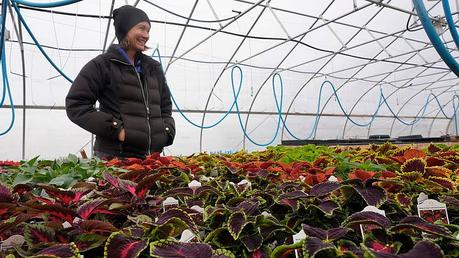
Conventional farmers treat organic farms as pest "hotspots."
Still, the "impressive data set" makes the study useful in generating valuable questions about it Agriculture practices and pesticides, says Christian Krupke, who studies insects as a professor of entomology at Purdue University and was not involved in the research. The total number insects is declining, a phenomenon some scientists have called the "insect apocalypse," but pesticide use is not declining, he said.
Krupke said the study shows how conventional farmers are coping in the area biological operations "as this focal point of potential outbreaks."
David Haviland, an entomologist at the University of California who was also not involved in the study, agreed. He described the battle in Kern County to control the glassy-winged sharpshooter that is ravaging citrus orchards and can introduce devastating plant diseases to grapes, almonds and some other crops.
Haviland said regional maps clearly show organic farms as "these big, incredible hotspots where there are huge numbers of this pest." Conventional growers in the area must increase their pesticide use as a result, he said.
Yichao Rui, an agroecologist at Purdue, said these kinds of responses from farmers aren't always due to an actual increase in pests; sometimes it's just for "peace of mind". And Katy Rogers, who manages an organic farm outside Indianapolis, said it's a misconception in many cases that organic farmers are dealing with massive infestations.
"We don't promote populations of harmful insects on most organic farms, on a well-managed farm," she said. "We simply combat them first with other tools. Because it's bad insects would still destroy my crops."
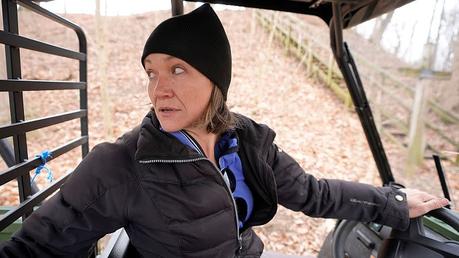
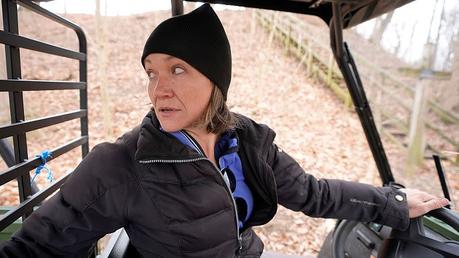
'Holistic assessment' of agricultural practices needed
Rui said exploring the environmental impacts of organic farming is a worthy goal, whether organic or conventional farms have room for improvement. But he thinks looking only at pesticide use doesn't take into account factors such as human health, air and water quality and the diversity of ecosystems that can be affected by different farming methods.
"We need a holistic assessment of the benefits and trade-offs of all these agricultural practices," he said.
Brad Wetli, an Indiana farmer who grows grain conventionally, said he hasn't noticed any changes in his pest control situation since his neighbor switched to organic four years ago.
He thinks that farmers He may be more likely to apply more pesticides to high-value crops like fruits, vegetables and nuts in California, while the row crops he grows, like corn and beans, aren't worth as much per acre, so a bigger change would be needed in Agriculture. number of insects he saw on his farm before reaching for more spray.
Wetli was more concerned with soil management. He is careful about planting cover crops and has worked to reduce tillage, which can cause soil erosion and pollute waterways. Agriculture sometimes it still involves soil cultivation.
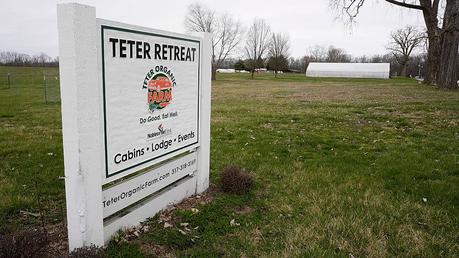
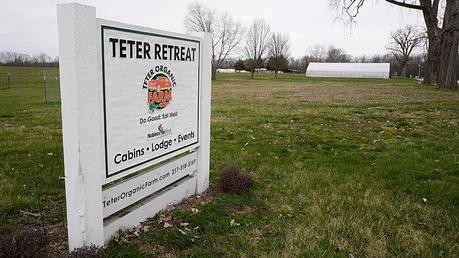
What impact does conventional agriculture have on organic agriculture?
Meanwhile, organic farmers raised concerns that the research focuses on the effects of organic farms on conventional farms, but not the other way around. For example, according to the USDA, they could lose their certification for up to three years if prohibited material is applied to their fields, even if accidentally.
Walter Goldstein, a corn breeder in Wisconsin who produces both organic and non-organic seed, grew up on an organic farm amid conventional farms and still remembers the drift of pesticides.
"There are just really strange smells," he said. "Chemical odors. They smell like factory stuff."
Jay Shipman, who owns an organic farm in Kern County near another large organic farm, said he likes it Agriculture next to someone with similar practices "not just because it's economics," he said, but because "this is how I eat. This is how I want my family to eat."
However, he added that he grew up in conventional farming and understands that convincing farmers to do something different can be "hard to change and hard to swallow."
Rogers, the organic farm manager of Indianapolis, spent much of her life in conventional farming Agriculture and says she was taught that organic farmers are "enemies." She is now deeply committed to a small church-run organic and regenerative farm with vegetables, beehives and hay.
Rogers said she sees benefits in bringing organic farms together, but thinks dividing organic and conventional farmers, as the researchers suggested, could be "even more polarizing."
"At the deepest level, we all are manage land and we actually all want to contribute," she said.
